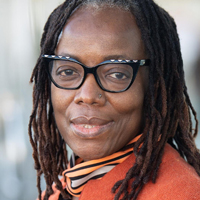It’s Booker season again, as the long list for this year’s prize has just been announced. It is an international selection, with six Americans, three British writers, two Irish, a Sri Lankan and a Zimbabwean. The full list is here. Some of quite famous names, already with a significant following, like Elizabeth Strout; others are first timers, making their debut, like NoViolet Bulawayo. A name which it is a delightful surprise to see is that of Alan Garner, whose dark, thoughtful long-pre-Potter fantasy novels, like The Weirdstone of Brisingamen, The Moon of Gomrath and Elidor were essential books of my childhood. His classic novel The Owl Service taught me that a book you couldn’t quite fully understand was a fascinating book, not a problem one, an idea which occurred later with William Golding’s Darkness Visible. It’s a good lesson that the best fiction for young people remains some of the best fiction, and it’s great to see Garner still active well into his ninth decade and still being put forward for prizes.
 NoViolet Bulawayo is the Zimbabwean on the list and she follows in the footsteps of her compatriot Tsitsi Dangarembga (left), who is perhaps most famous for her seminal novel of growing up, Nervous Conditions. In the novel, the protagonist Tambu not only emerges from her childhood, but learns key lessons, often painfully, about colonial Africa. That political slant is apparent in Dangarembga’s continuing work and writing and even now she continues to be a thorn in the flesh of the Zimbabwean government. She has recently published her first work of non-fiction, a collection of political essays titled Black and Female. It’s a good illustration of the fact that most writers are immersed in contemporary events – literature is not an escape from them, but a way of exploring them, and that is as true of a novel as a book of essays. Read a review here.
NoViolet Bulawayo is the Zimbabwean on the list and she follows in the footsteps of her compatriot Tsitsi Dangarembga (left), who is perhaps most famous for her seminal novel of growing up, Nervous Conditions. In the novel, the protagonist Tambu not only emerges from her childhood, but learns key lessons, often painfully, about colonial Africa. That political slant is apparent in Dangarembga’s continuing work and writing and even now she continues to be a thorn in the flesh of the Zimbabwean government. She has recently published her first work of non-fiction, a collection of political essays titled Black and Female. It’s a good illustration of the fact that most writers are immersed in contemporary events – literature is not an escape from them, but a way of exploring them, and that is as true of a novel as a book of essays. Read a review here.
You might be interested in this little profile of Sebastian Faulks, who really made his name with the First World War novel Birdsong, but has a long list of publications, most recently Snow Country. It’s interesting to see that he cites as influences writers as diverse as George Orwell, Charles Dickens, Jane Austen DH Lawrence, and JD Salinger.
A while ago Jim Crace featured in this blog. He has just published his latest novel, eden, billed as a fable. Read a review here.